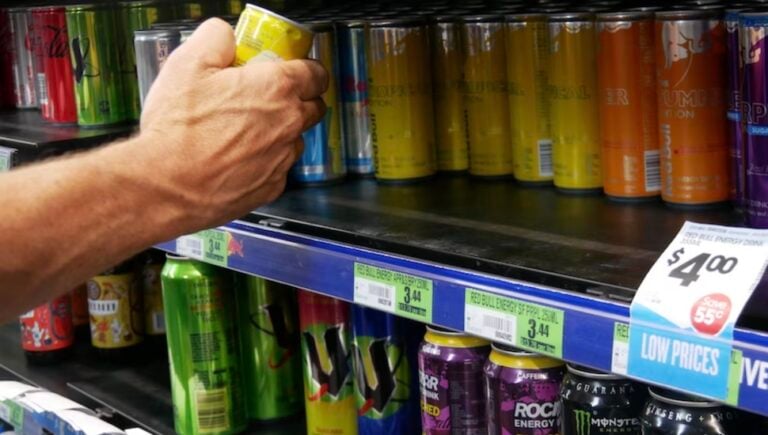Last week, a rule kicked in the WA town of Bridgetown that banned the sale of energy drinks for those ages under 18.
The ban will be in place for four months in the town of just under 3,000 people and is a world-first study. Like cigarettes and alcohol, people who want to buy energy drinks will have to show ID to show that they’re 18 or older.
The ban began last week and will run until the end of May. During this time studies will determine how detrimental energy drinks are to children and teens, and whether there is ground for them to be banned.
Rachel Beard, Sleep Wellness Manager at A.H. Beard’s Sleep Wellness Centre told The Brag that the consumption of alcohol can affect the mental and physical aspects of a growing body.
“Consuming caffeine 6 hours before going to bed can still disrupt sleep. So for teenagers, caffeinated drinks and snacks close to bedtime can significantly impact the quality of sleep which is where we see the greatest impact. Teens need 8 – 10 hours sleep, but on average only get 6.5 to 7.5 hours a night,” she said.
Beard added, “Quality sleep helps hormone production, emotional regulation, memory consolidation, balancing our mood and stress – all essential for teenagers. So stimulants like caffeine can be particularly disruptive for the growing teenage body that depends on the restorative benefits of sleep.”
“More research is needed to understand the connection between sleep and mental health, but what we do know is there is truth behind the saying ‘I woke up on the wrong side of the bed.’ Prolonged sleep loss will naturally increase exposure to negative feelings, we don’t want to exacerbate this if we can avoid it.”
Beard said she believes that the Bridgetown study is a positive one.
“A study like this in Bridgetown, Western Australia, is a step in the right direction. If we can intervene and help create positive behaviours at a young age, we’re supporting healthy habits that last.”
For more on this topic, follow the Food and Drink Observer.

































